UK teaching unions continue industrial action amid cost of living crisis
Nearly half a million striking public sector workers and teachers have, yet again, come out of classrooms and hospitals and on to the streets, calling for better pay and conditions.
The biggest number striking over two days this week were teachers, 300,000 of them.
Schools are in crisis because of a lack of funding. There is not enough money going into the schools. It's not just about the pay for the teachers and for the support staff; it is about the basics in the schools.
Paul Coles, National Education Union
This is the second time this year that teachers have walked off the job as part of the long running wave of industrial action that has swept the United Kingdom in the past few months.
Things have gone up a notch in a momentous day of walkouts, coinciding with the announcement of the budget by the country's finance minister in Parliament just down the street from the protestors.
Among other things, Finance Minister Jeremy Hunt promised $115 billion in cost of living support for families.
Ahead of the walkout the teaching unions were asked by the government to call off their strike in return for formal talks.
The union said that was a precondition they wouldn't accept.
There's already enough barriers to taking strike action. It's really hard to actually get a mandate to take strike action. We will talk if a decent offer is put on the table.
Paul Coles, National Education Union
A decent offer is yet to be made and in the Battle of hearts and minds striking workers are still winning, with health workers and teachers enjoying the most support.
A Primary School teacher, Chris, believes the government has some political choices to make.
Teachers don't want to strike, I want to be in school, I want to be in my class today. So I certainly hope there won't be strikes, but there may be more strikes if the two sides can't make an agreement.
Primary School Teacher, Chris
Cost of Living protests and walkouts in the UK have been going on for months now with strike fatigue nowhere in sight.

Palestine Solidarity Campaign director on trial

‘Doctors Against Genocide’ demands US Senate stop Trump

Trump deportation policy
Netanyahu: Israel won't allow Hayat Tahrir al-Sham forces in southern Syria
Hezbollah leaders’ historic funeral showed resistance strength: Islamic Jihad
Iran reports surge in air traffic as Austrian, Lufthansa resume flights
VIDEO | South Africans set to lobby government to isolate Israel
IRGC chief: Nasrallah decisive figure in regional equations with global dimensions
VIDEO | Press TV's News Headlines
Netanyahu's son 'exiled abroad for hitting his father': Knesset member
Iran money supply up 28.4% y/y in late January: CBI


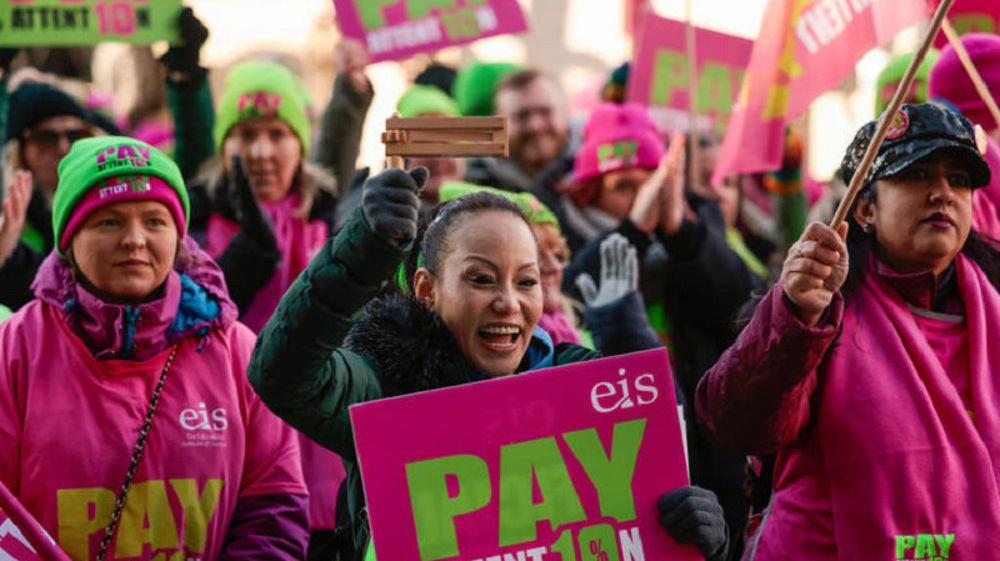
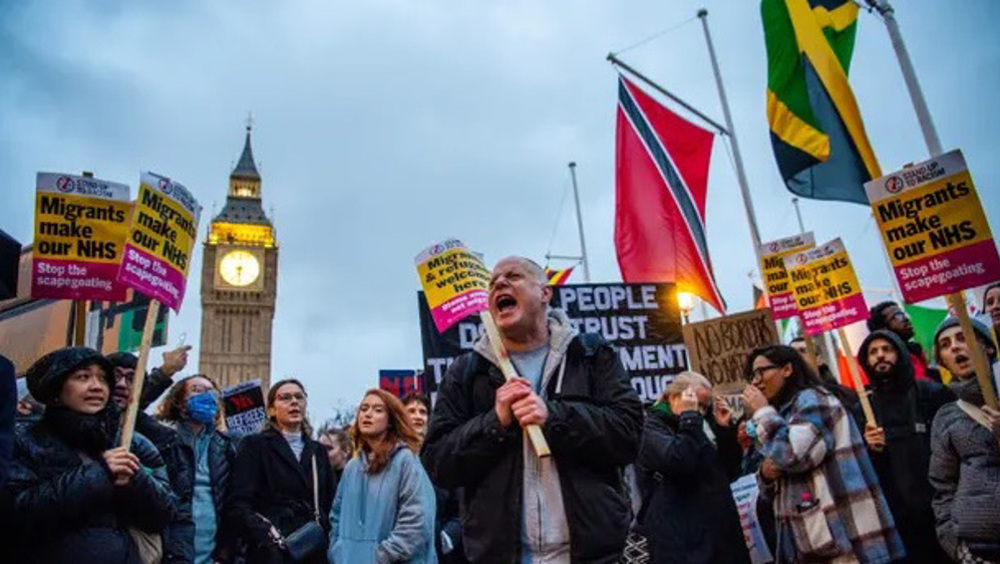
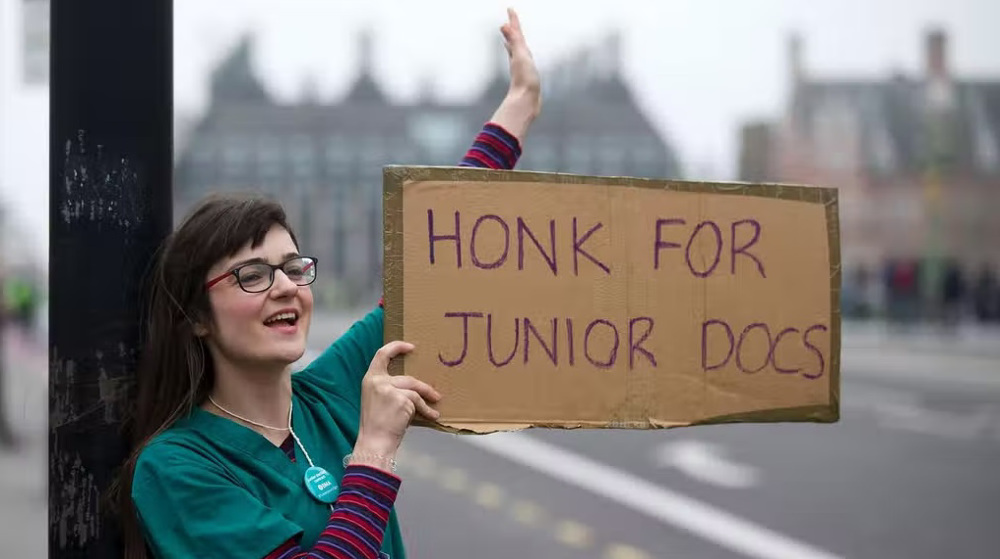
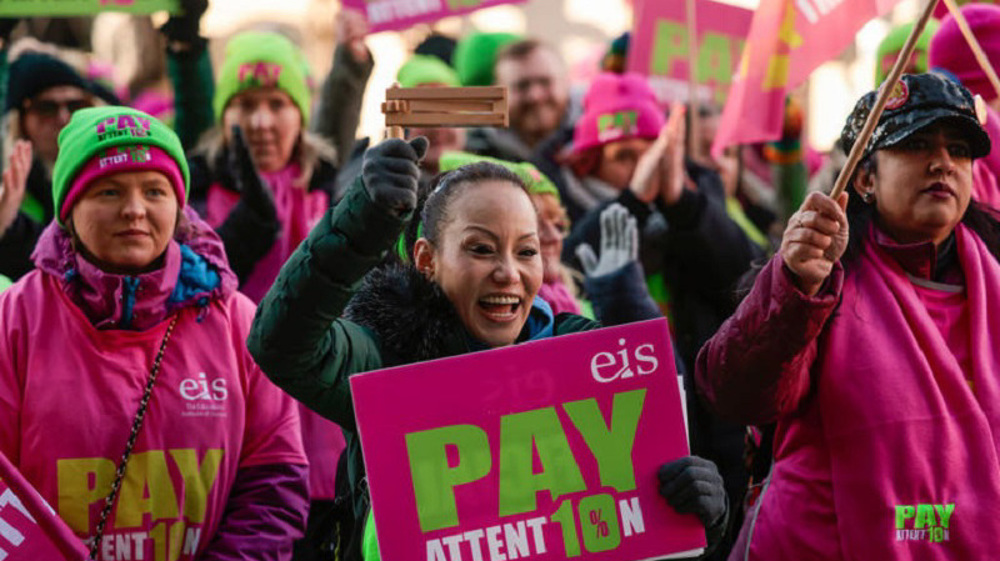
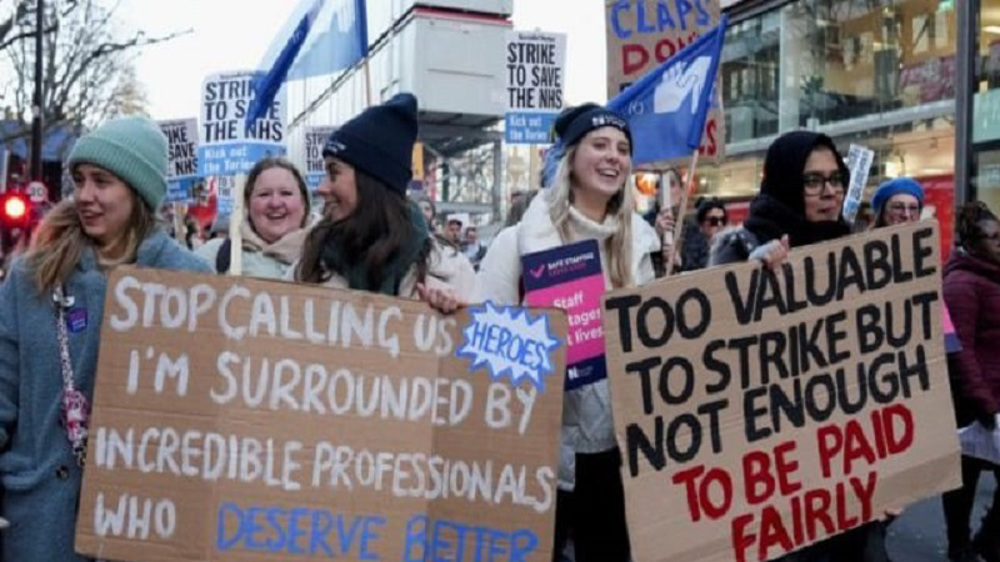
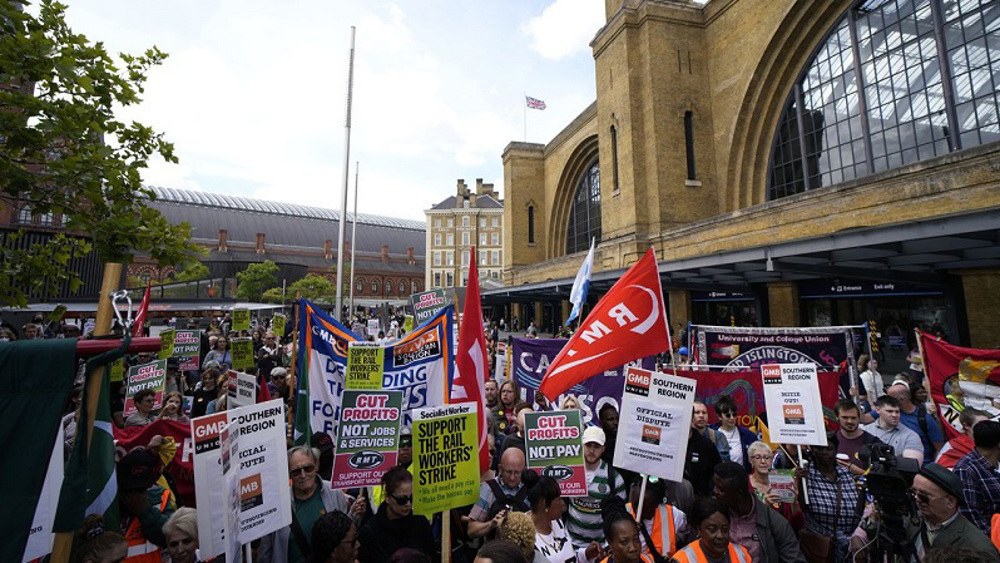



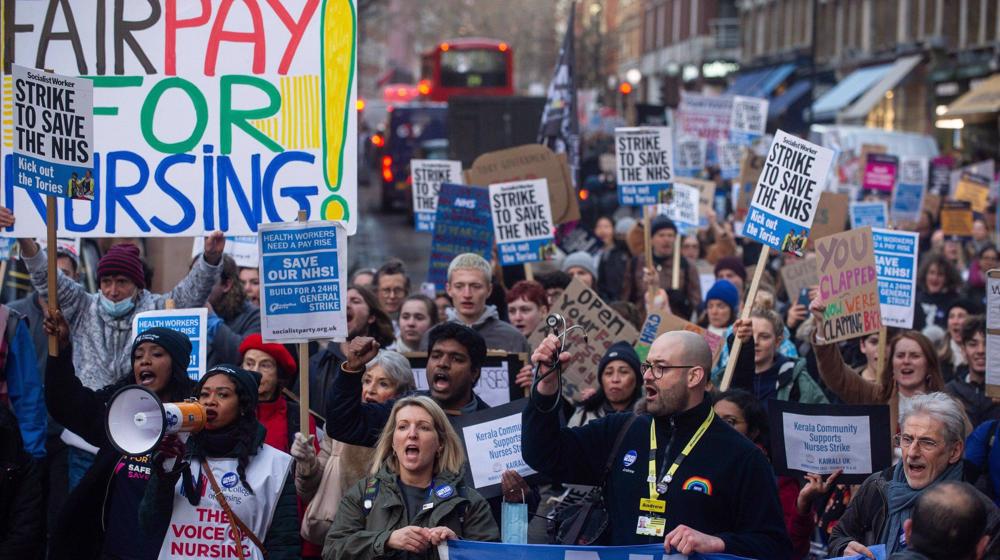
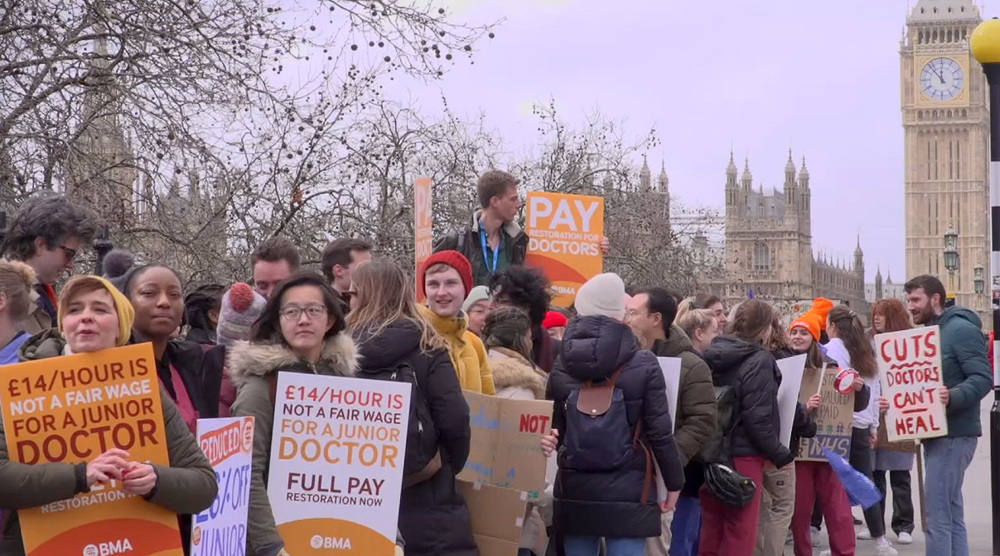
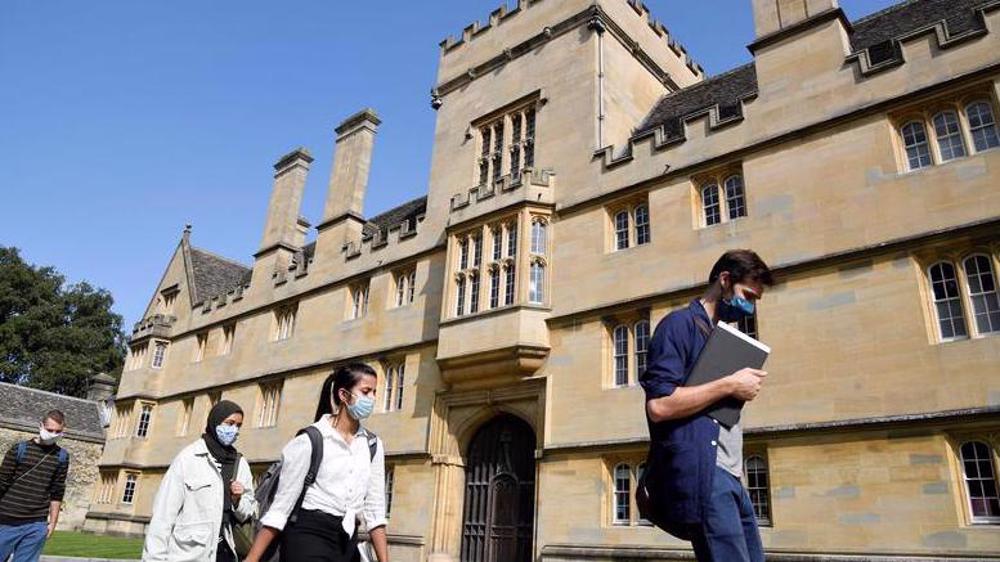
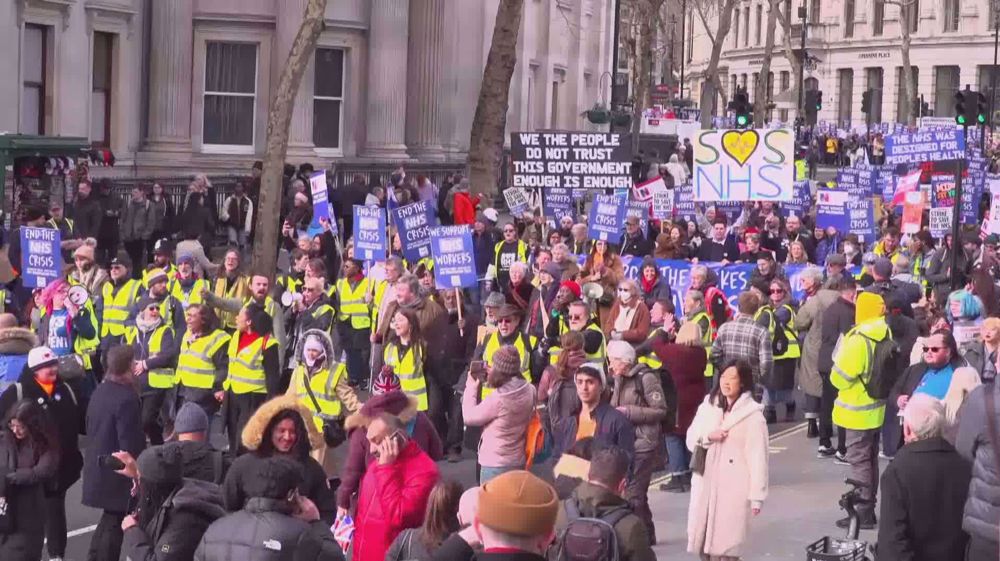

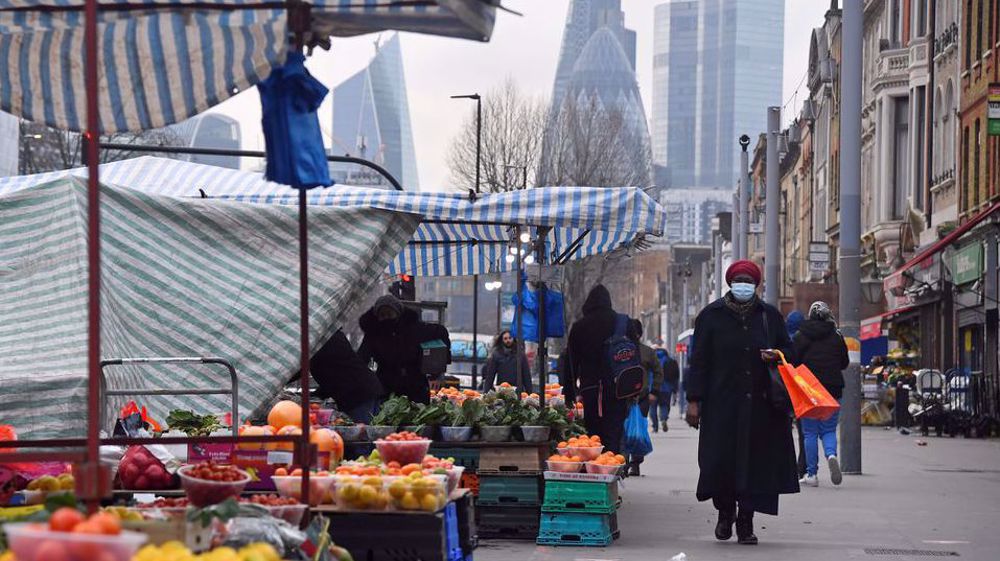
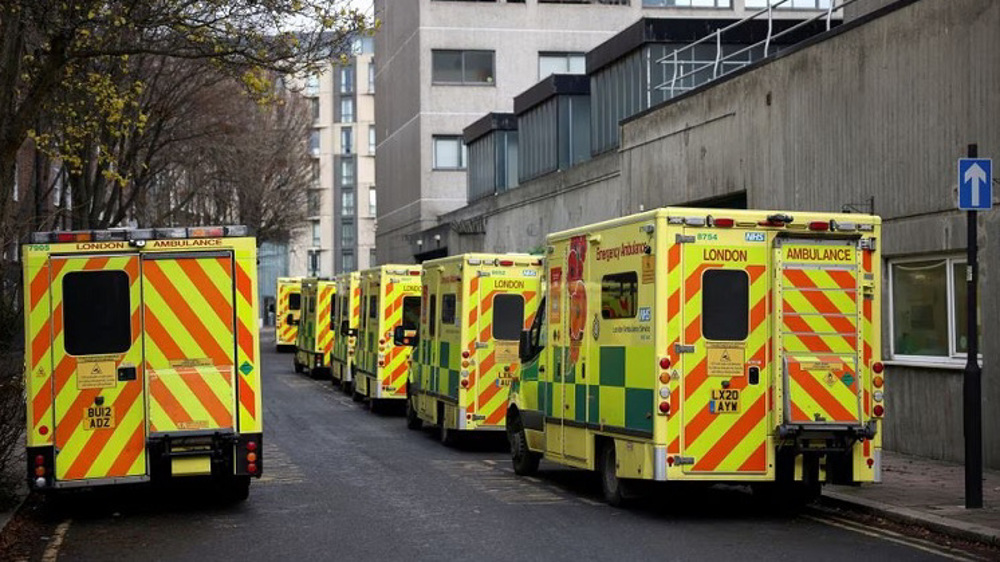

 This makes it easy to access the Press TV website
This makes it easy to access the Press TV website